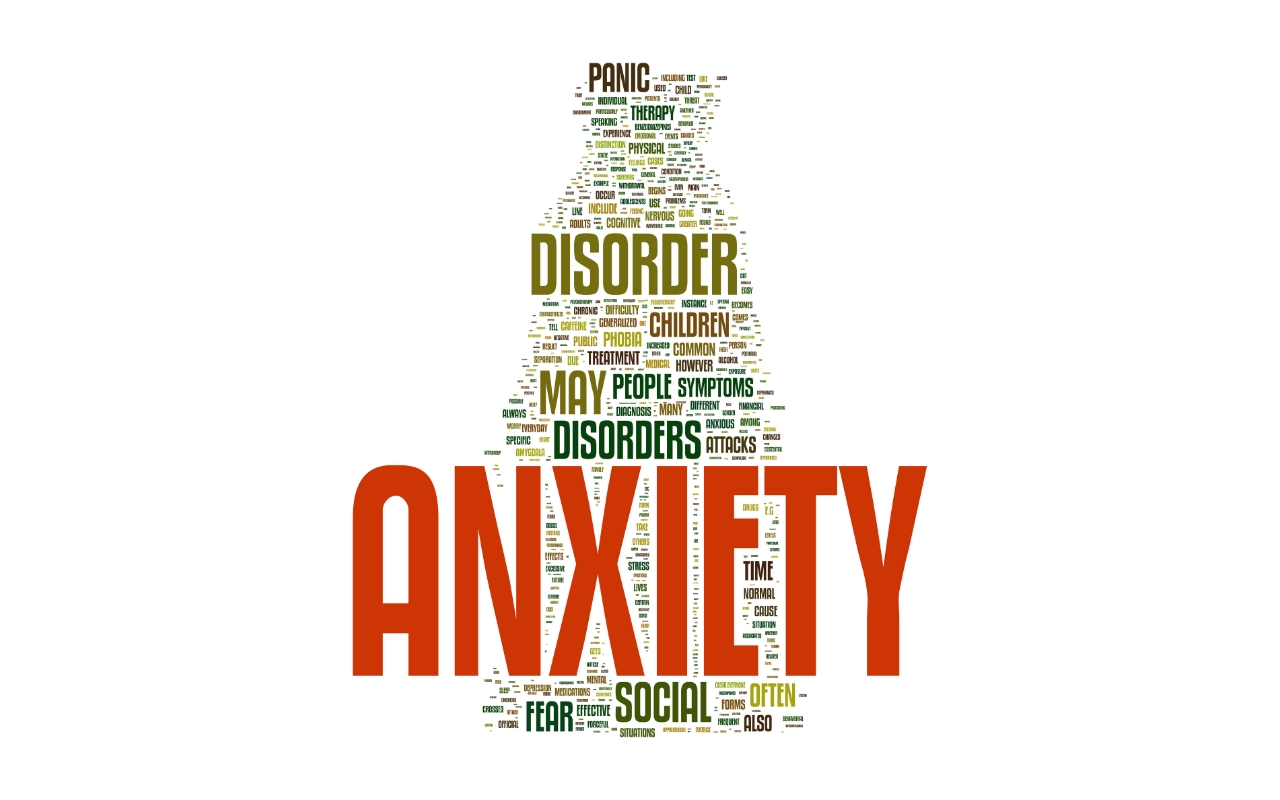Depression and anxiety have become increasingly prevalent in today's fast-paced world, affecting millions of people globally. The emotional strain brought about by these conditions can be overwhelming, leading to many challenges in both personal and professional aspects of life. However, there are numerous strategies and resources available to help manage and alleviate the symptoms associated with these mental health issues. This article aims to provide a comprehensive guide to coping with depression and anxiety, offering practical advice and highlighting valuable resources.
Understanding Depression and Anxiety
Depression is more than just a feeling of sadness. It is a severe mood disorder characterized by persistent feelings of hopelessness and loss of interest in daily activities and can significantly impair one’s ability to function. Symptoms of depression can include changes in appetite, sleep disturbances, fatigue, and difficulty concentrating. Anxiety, on the other hand, is often characterized by excessive worrying, restlessness, and physical symptoms like increased heart rate and sweating. Both conditions can co-occur and exacerbate each other, making it paramount to address them holistically.
The Importance of Seeking Professional Help
Recognizing the need for professional help is a crucial step in managing depression and anxiety. Psychotherapy, such as Cognitive Behavioral Therapy (CBT), and medication can be highly effective. In the UK, individuals can access talking therapies like CBT through the NHS without a GP referral. Finding a local service can be the first step toward recovery if one is under 18 or looking for support for someone younger; resources are available specifically for children and young people. Consulting a GP can also guide antidepressants and other treatments available.
In cases where thoughts of self-harm or suicide arise, immediate action is necessary. Resources like Samaritans offer 24-hour confidential support. In the United States, contacting the National Suicide Prevention Lifeline at 988 or visiting the nearest hospital emergency department can provide critical help.
Lifestyle Modifications for Mental Health
Lifestyle choices play a significant role in managing depression and anxiety. Here are some ways to modify your lifestyle to support better mental health:
Prioritize Sleep
Quality sleep is interconnected with mental health. Adults should aim for seven to nine hours of sleep each night. Keeping a steady sleep schedule, even on weekends, can help maintain this routine. Noting any factors that affect sleep quality, such as stress, noise, or light, and making minor adjustments like going to bed half an hour earlier can make a significant difference.
Nutrition and Hydration
Good nutrition is fundamental to mental health. Making simple, healthy eating plans and preparing nutritious snacks in advance can ensure that you have balanced options readily available. Mild dehydration can impact mood, so drinking enough water is essential. Before reaching for a snack, try drinking a glass of water first to ensure your body isn’t mistaking thirst for hunger.
Limit Substance Use
Substances like alcohol and caffeine can exacerbate anxiety and depression. Alcohol is a depressant and can lead to feelings of jitteriness or anxiety the following day due to mild detoxification symptoms. Monitoring and limiting substance use can help in reducing these adverse effects. Consider tracking your consumption and noting its impact on your mood and functioning.
Building a Support System
Social support is crucial in managing mental health. Spending time with friends and family can help alleviate stress and provide emotional support. If you lack a support system, consider joining a club, sports team, or volunteering, which can help build new connections and alleviate feelings of loneliness. Social support groups can also be beneficial for sharing experiences and finding communal strength.
Creating boundaries and learning to say no can also help manage stress. Overcommitting to responsibilities can lead to overwhelming feelings, so protecting your time for self-care is essential. Setting boundaries with those who contribute to your stress can be a healthy way to manage your mental well-being.
The Role of Physical Activity
Regular physical activity has been shown to significantly improve mental health. Exercise releases endorphins, which are natural mood lifters. Engaging in activities like walking, running, or yoga can effectively reduce stress and anxiety. Whether it's a structured workout at the gym or a simple walk in the park, making physical activity a regular part of your routine can have substantial benefits.
Mindfulness and Meditation
Mindfulness and meditation practices can help manage symptoms of depression and anxiety by fostering a sense of calm and presence. Deep breathing, progressive muscle relaxation, and guided imagery can reduce stress and promote relaxation. Apps and online resources can provide structured programs to follow, making incorporating these practices into your daily life easier.
Setting Realistic Goals and Practicing Self-Compassion
Setting realistic goals and celebrating small victories can create a sense of accomplishment and motivate continued progress. Breaking tasks into manageable steps and focusing on completing one thing at a time can reduce overwhelming feelings.
Practicing self-compassion involves being kind to yourself, especially during difficult times. Acknowledge your efforts and be patient as you work through your challenges. It’s important to remember that progress may be slow, but every step forward is valuable.
Educational Resources
Educating yourself about depression and anxiety can empower you to take control of your mental health. Understanding the symptoms, treatments, and coping strategies available can make seeking help and implementing effective management techniques easier. The National Institute of Mental Health (NIMH) offers expert-reviewed information on mental health disorders and coping strategies. Their resources can be handy for understanding the broader context of mental health challenges and the various support options available.
The NIMH's resource hub includes statistics on mental illness prevalence and treatment costs in the U.S., brochures, fact sheets, and information on clinical trials. Engaging with this material can provide deeper insights into your condition and available treatments.
Quitting Smoking
Quitting smoking can be a significant step in improving mental health. Contrary to some beliefs, quitting smoking does not worsen depression and can enhance mental well-being in the long run. Research shows that smokers struggling with depression who quit smoking often experience improvements in their mental health. Free resources to support smoking cessation are available, such as the CDC’s quit smoking services. Utilizing these resources can provide the support needed to quit smoking and improve overall health successfully.
Utilizing Technology for Mental Health
Technology has made it easier to access mental health support and information. Various apps and online platforms offer cognitive-behavioral techniques, meditation guides, and mood-tracking functionalities. These tools can complement traditional therapy and provide ongoing support. Some apps also offer connections to licensed therapists, providing a convenient option for people who may find it challenging to attend in-person sessions.
Embracing Positive Lifestyle Changes
Reflecting on habits developed during the pandemic can be a helpful exercise in understanding their impact on mental health. Assess which habits to keep and which to change. For instance, maintaining a healthy diet, staying hydrated, and ensuring adequate sleep are positive practices to uphold. On the other hand, excess screen time, increased substance use, and disrupted routines may need adjustment.
Self-Reflection and Journaling
Self-reflection through journaling can be a therapeutic way to process emotions and thoughts. Writing about daily experiences, feelings, and progress can provide clarity and a sense of release. It can also help in identifying patterns and triggers that exacerbate anxiety or depression.
Engaging in Hobbies and Interests
Pursuing hobbies and interests can provide a welcome distraction and create a sense of fulfillment. Whether painting, reading, gardening, or playing music, engaging in activities that bring joy can significantly enhance mood and reduce stress levels.
Strategies for Crisis Management
In times of crisis, when feelings of depression or anxiety become overwhelming, having a plan in place can be life-saving. Knowing whom to contact and where to go for immediate help is crucial. Resources like the National Suicide Prevention Lifeline provide 24/7 support for those in need. Additionally, reaching out to a mental health provider, close friend, or family member can provide immediate assistance and emotional support.
For those experiencing severe symptoms, seeking emergency medical treatment at the nearest hospital can ensure safety and access to urgent care. It’s essential to communicate openly with healthcare providers about the severity of symptoms to receive appropriate care.
Conclusion
Coping with depression and anxiety is a multifaceted process that involves a combination of professional treatment, lifestyle modifications, social support, and self-care practices. By prioritizing sleep, nutrition, and physical activity, limiting substances, and building a solid support system, individuals can manage their symptoms more effectively. Additionally, utilizing resources like psychotherapy, educational materials, and crisis support services can provide critical assistance on the journey to mental wellness.
Embrace the steps toward improving mental health with compassion and patience, and remember that help is always available. By taking proactive measures and seeking the support needed, it is possible to navigate the challenges of depression and anxiety and work toward a healthier, happier life.











